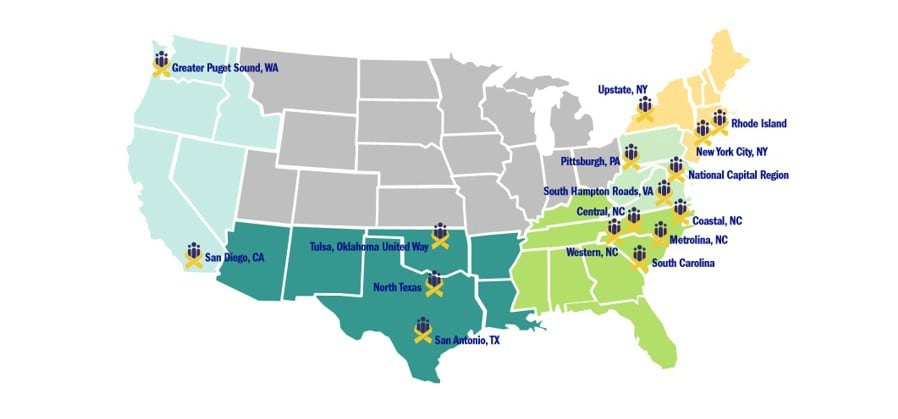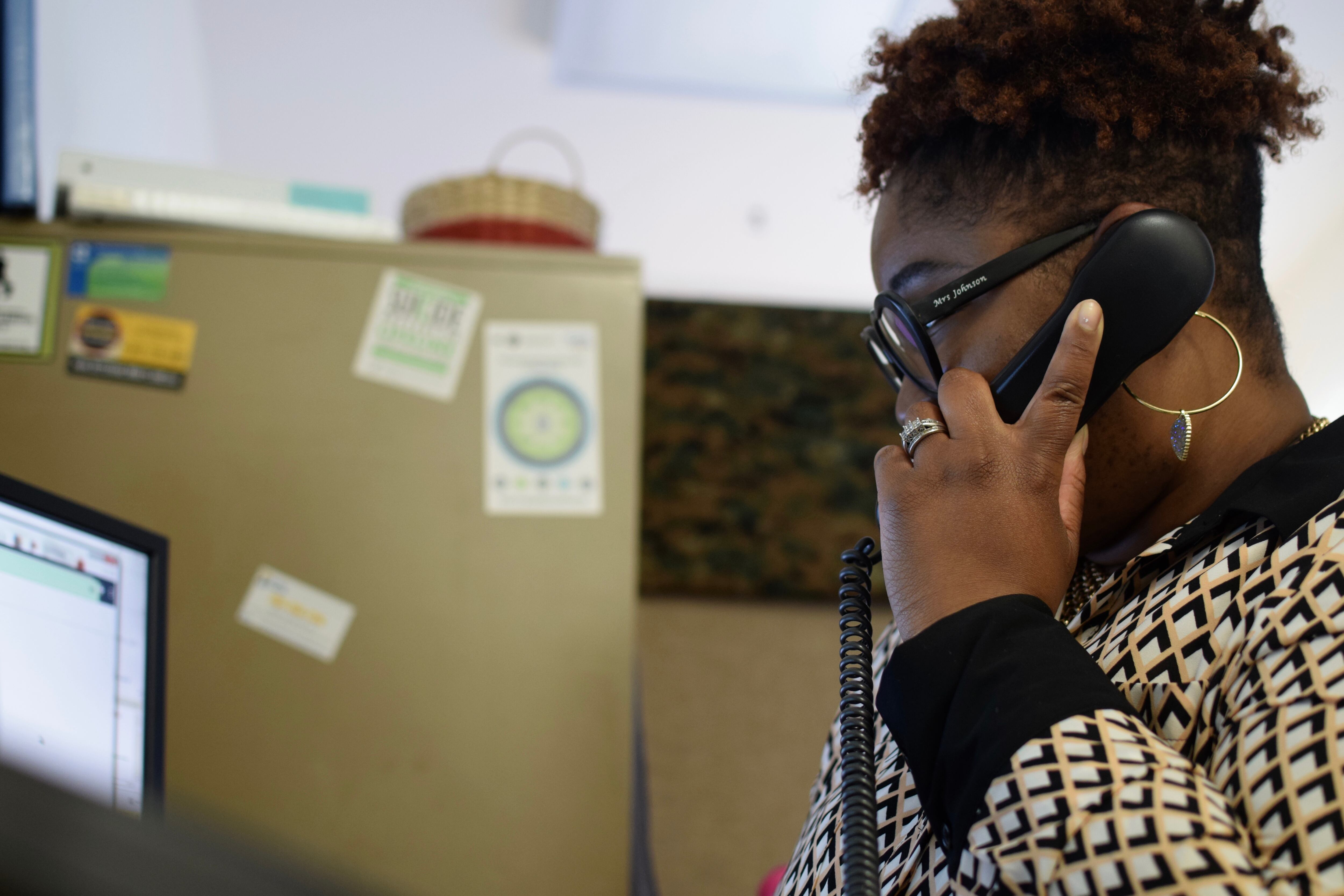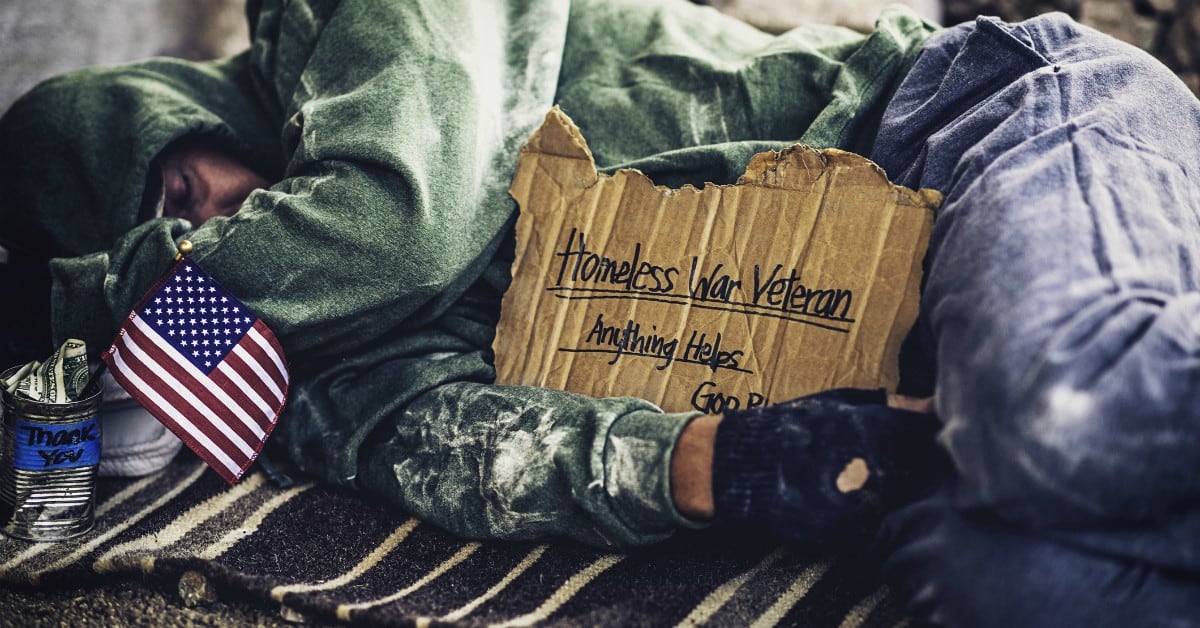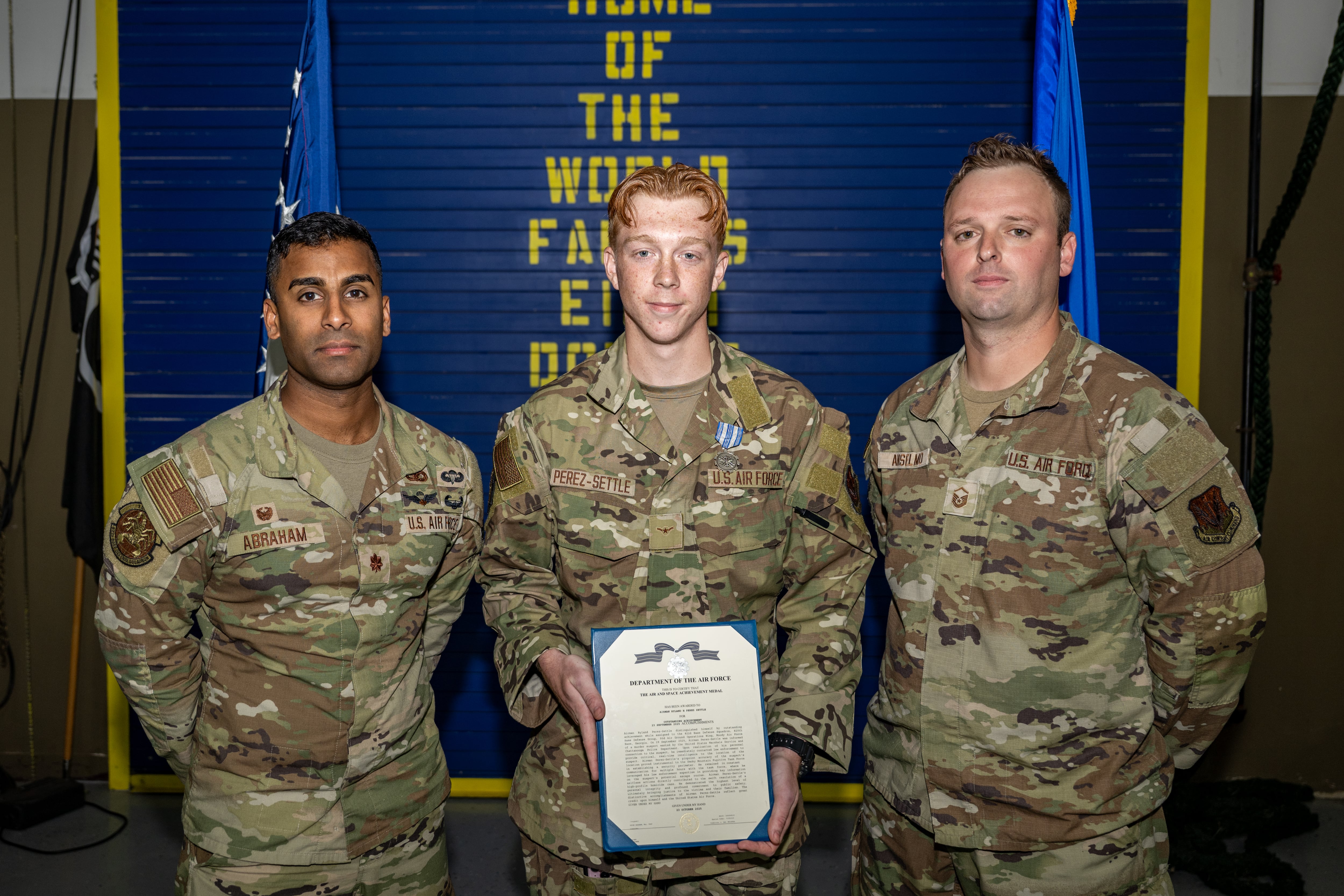Lance Caver’s 19 years in the Army National Guard and countless overseas tours left him with aching pains from head to toe that make it difficult for him to work a full-time job.
So when he didn’t get a disability check for two months last year because of a records mix-up, the Caver family struggled to pay bills and was in danger of losing their home. The former staff sergeant made a few calls looking for help and found piecemeal assistance here and there, but nothing substantial enough to get them through.
“I knew quite a few programs, and I just kept running into dead ends,” Caver said in a recent interview.
Then someone told him about WAServes, a network of organizations in the greater Puget Sound area of Washington that work together to help veterans in their community. Caver said he made an inquiry online and within days had offers of gas cards and groceries pouring in. Most importantly, someone from the network was able to put him in touch with a VFW post that gave him money to cover his house payment before it was too late.
“We would’ve gone into foreclosure and probably lost our house,” if not for WAServes, Caver said.
WAServes is part of AmericaServes, a national network started by the Institute for Veterans and Military Families at Syracuse University. The network connects veterans and their family members in need of financial, employment, medical, legal or other help with local organizations that can meet their needs.
AmericaServes began in New York in 2015 and has grown to serve 16 regions with the late-May launch of the newest affiliated network in the Washington, D.C., metro area, called ServingTogether. Its partners include nonprofits, higher education institutions and local and federal government programs offering a range of services.
“For many separating from the service, the transition itself is very complex,” said Jim McDonough, managing director of IVMF programs and services. “Everything was provided for the military member while in military service. We’re not educating service members on nearly enough of this as they transition.”
Each AmericaServes network has a coordination center to process veterans inquiries made in person, online or over the phone. Staff there then contact the veteran for more information and send out requests to the relevant partner organizations.

“We can get everything from, ‘Hey, I’m trying to sell my boat,’ to ‘Hey, I’m homeless and living in my car,’” said Jennifer Watson, who processes inquiries as a peer navigator for ServingTogether.
Through a shared software, AmericaServes networks make referrals, compare notes and are able to track veterans as they’ve been helped, keeping each other accountable for the speed of delivery.
From its launch in 2015 to 2017, AmericaServes networks helped nearly 13,000 veterans or military family members, including 550 service members in transition, according to a recent IVMF status report.
The five most common areas of need during that time were housing, employment, individual and family support, money management and benefits. One-third of all clients had needs in more than one area, and the AmericaServes model offers them a “one stop shop” to get help, its leaders say.
During a recent Monday morning, Watson called someone with a service-connected disability who asked for help finding work. In addition to employment, the ex-Marine also struggled with housing, food insecurity and a criminal past.
“You start to get the picture of what’s going on in somebody’s life,” said Watson, an Air Force veteran. “It sort of brings them from being just a phone call to this is an actual human being who really has been through it, and they need help.”

Whether a veteran retired from the military or was court-martialed doesn’t matter for AmericaServes organizations, the majority of which are not specifically veteran-focused, McDonough said.
“Stuff happens,” he said, and this work is about recognizing a moral and ethical need to help fellow human beings.
A system like AmericaServes makes it a lot easier to find that help, a process that can often be frustrating and confusing for people in need, said Niki Thrash, chief development officer at EveryMind, the mental health nonprofit that first developed the ServingTogether network.
“The veteran doesn’t have to hear ‘no’ because some providers might only be able to provide a service to service-wounded, or post-9/11 or Vietnam era or whatever,” she said. “When that referral goes into the system, they never hear ‘no’ because what they hear next is the person who’s going to help them.”
Caver, who once worked at the nonprofit Disabled American Veterans, said he knew of many veteran-serving organizations, but none of them had the resources to help him in the way he and his family needed at the time. Once he called WAServes, he was able to tap into a much bigger support system.
“If you’re doing some crosstalk and you can bring everything into one place to get the help that you need — whether it’s housing, whether it’s food or whether it’s just a little bit of financial assistance because of something that happened like my case and many other cases like it — that’s great,” he said. “We’ve needed an organization like WAServes or (AmericaServes).”
Military Times contributor and former reporter Natalie Gross hosts the Spouse Angle podcast. She grew up in a military family and has a master's degree in journalism from Georgetown University.





